-
×
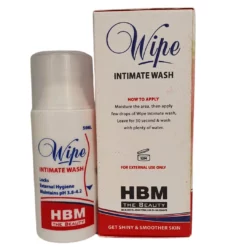 Everteen Intimate Wash Wipes (50ml) - Gentle & Convenient Cleansing, Anytime, Anywhere| derma.pk
₨ 600
Everteen Intimate Wash Wipes (50ml) - Gentle & Convenient Cleansing, Anytime, Anywhere| derma.pk
₨ 600 -
×
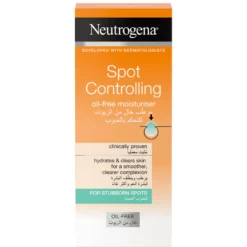 NEUTROGENA SPOT-FIGHTING OIL-FREE MOISTURIZER 75ml
₨ 2,415
NEUTROGENA SPOT-FIGHTING OIL-FREE MOISTURIZER 75ml
₨ 2,415 -
×
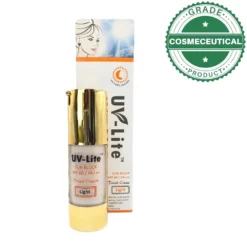 UV-LITE SPF60/PA+++ SUNBLOCK TINTED CREAM
₨ 2,990
UV-LITE SPF60/PA+++ SUNBLOCK TINTED CREAM
₨ 2,990 -
×
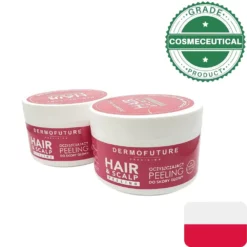 DERMOFUTURE HAIR AND SCALP PEELING 300ml
₨ 3,000
DERMOFUTURE HAIR AND SCALP PEELING 300ml
₨ 3,000 -
×
 ELCEA RADIANCE SHAMPOO 250ml
₨ 3,125
ELCEA RADIANCE SHAMPOO 250ml
₨ 3,125 -
×
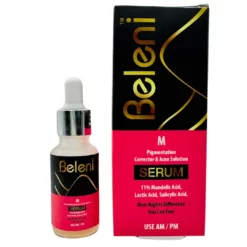 Best Skin Lightening Serum - Beleni Mandelic Serum -derma.pk
₨ 3,500
Best Skin Lightening Serum - Beleni Mandelic Serum -derma.pk
₨ 3,500 -
×
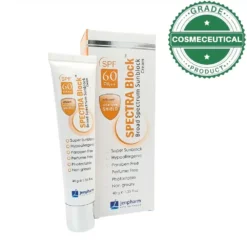 SPECTRA BLOCK BROAD SPECTRUM SUNBLOCK CREAM SPF 60 PA++ UVA/UVB SHIELD 40g
₨ 998
SPECTRA BLOCK BROAD SPECTRUM SUNBLOCK CREAM SPF 60 PA++ UVA/UVB SHIELD 40g
₨ 998 -
×
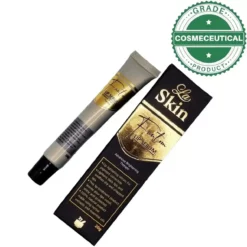 LA SKIN FANTUM LIP SERUM ADVANCED BRIGHTENING THERAPY 20g
₨ 1,580
LA SKIN FANTUM LIP SERUM ADVANCED BRIGHTENING THERAPY 20g
₨ 1,580 -
×
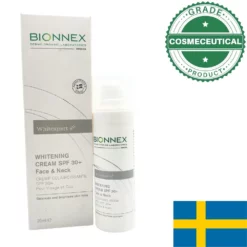 BIONNEX WHITENING CREAM SPF 30+ FACE AND NECK 30ml
₨ 3,990
BIONNEX WHITENING CREAM SPF 30+ FACE AND NECK 30ml
₨ 3,990 -
×
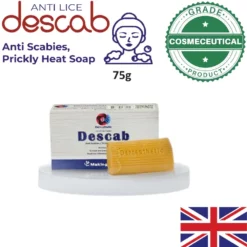 DESCAB SOAP ANTI SCABIES AND PRICKLY HEAT SOAP 75g
₨ 200
DESCAB SOAP ANTI SCABIES AND PRICKLY HEAT SOAP 75g
₨ 200 -
×
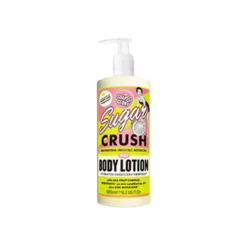 SOAP & GLORY: AIRY BODY LOTION 500ml (Copy)
₨ 5,275
SOAP & GLORY: AIRY BODY LOTION 500ml (Copy)
₨ 5,275 -
×
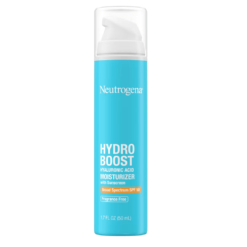 NEUTROGENA HYDRO BOOST SPF 50 MOISTURIZER FRAGRANCE-FREE 50ml
₨ 6,595
NEUTROGENA HYDRO BOOST SPF 50 MOISTURIZER FRAGRANCE-FREE 50ml
₨ 6,595 -
×
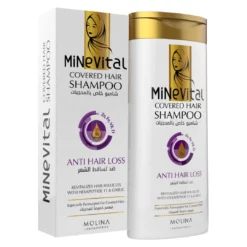 Minevital Anti-Hair Loss Shampoo 300ml - Strengthen & Revitalize Your Hair (Imported from Turkey)
₨ 3,750
Minevital Anti-Hair Loss Shampoo 300ml - Strengthen & Revitalize Your Hair (Imported from Turkey)
₨ 3,750 -
×
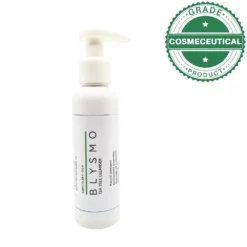 BLYSMO TEA TREE CLEANSER 100ml
₨ 1,700
BLYSMO TEA TREE CLEANSER 100ml
₨ 1,700 -
×
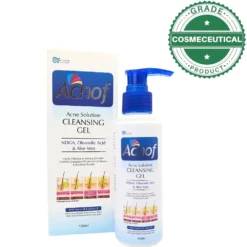 ACNOF ACNE SOLUTION CLEANSING GEL 100ml
₨ 1,520
ACNOF ACNE SOLUTION CLEANSING GEL 100ml
₨ 1,520 -
×
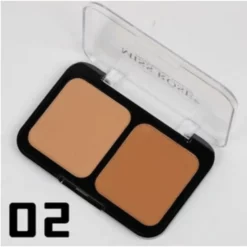 MISS ROSE CONTOUR PALETTE WITH 2 COLORS - N1
₨ 450
MISS ROSE CONTOUR PALETTE WITH 2 COLORS - N1
₨ 450 -
×
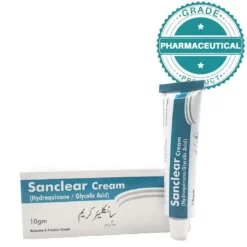 SANCLEAR CREAM 10gm
₨ 220
SANCLEAR CREAM 10gm
₨ 220 -
×
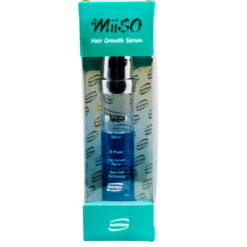 Miiso Hair Growth Serum 30ml | Hair Loss Treatment for Men & Women | derma.pk
₨ 2,475
Miiso Hair Growth Serum 30ml | Hair Loss Treatment for Men & Women | derma.pk
₨ 2,475 -
×
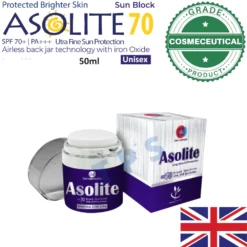 ASOLITE LONG TIME UV PROTECTION (SPF-70) SUNSCREEN 50g
₨ 1,650
ASOLITE LONG TIME UV PROTECTION (SPF-70) SUNSCREEN 50g
₨ 1,650 -
×
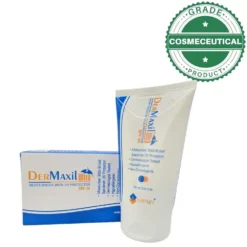 DERMAXIL ULTRA MOISTURISER WITH UV PROTECTOR (SPF-35) 100ml
₨ 2,380
DERMAXIL ULTRA MOISTURISER WITH UV PROTECTOR (SPF-35) 100ml
₨ 2,380 -
×
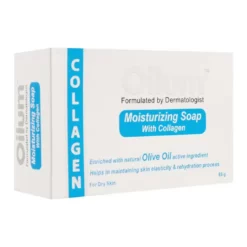 OILUM MOISTURIZING SOAP 85g
₨ 1,062
OILUM MOISTURIZING SOAP 85g
₨ 1,062 -
×
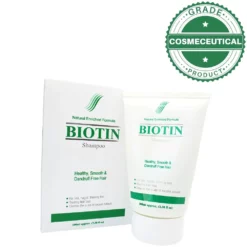 BIOTIN SHAMPOO HEALTHY SMOOTH AND DANDRUFF FREE HAIR 100ml
₨ 820
BIOTIN SHAMPOO HEALTHY SMOOTH AND DANDRUFF FREE HAIR 100ml
₨ 820 -
×
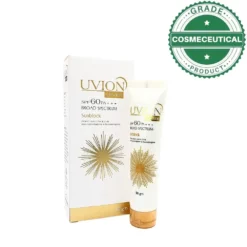 UVION SPF 60 PA +++ BROAD SPECTRUM SUNBLOCK 30gm
₨ 590
UVION SPF 60 PA +++ BROAD SPECTRUM SUNBLOCK 30gm
₨ 590 -
×
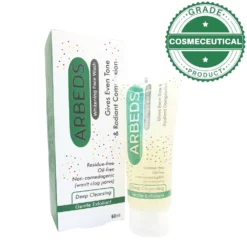 ARBEDS WHITENING FACE WASH 60ml
₨ 990
ARBEDS WHITENING FACE WASH 60ml
₨ 990 -
×
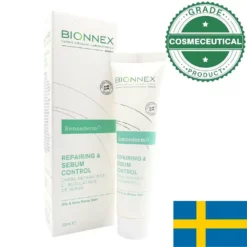 BIONNEX REPAIRING AND SEBUM CONTROL CREAM 30ml
₨ 3,990
BIONNEX REPAIRING AND SEBUM CONTROL CREAM 30ml
₨ 3,990 -
×
 DERMOFUTURE PRECISION HAIR GROWTH SHAMPOO 200ml
₨ 1,500
DERMOFUTURE PRECISION HAIR GROWTH SHAMPOO 200ml
₨ 1,500 -
×
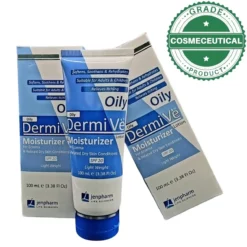 Moisturizer for Dry Skin - DermiVe Oily Lotion SPF 20 for Eczema Relief
₨ 998
Moisturizer for Dry Skin - DermiVe Oily Lotion SPF 20 for Eczema Relief
₨ 998 -
×
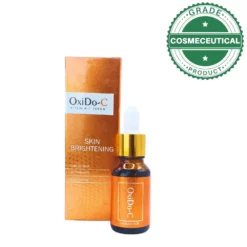 OXIDO-C VITAMIN C SERUM FOR SKIN BRIGHTENING 15ml
₨ 1,500
OXIDO-C VITAMIN C SERUM FOR SKIN BRIGHTENING 15ml
₨ 1,500 -
×
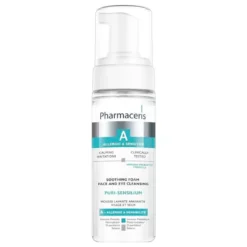 PHARMACERIS A Puri-Sensilium Soothing Face & Eye Cleanser (150ml) | For Sensitive Skin | derma.pk
₨ 4,875
PHARMACERIS A Puri-Sensilium Soothing Face & Eye Cleanser (150ml) | For Sensitive Skin | derma.pk
₨ 4,875 -
×
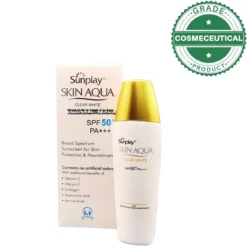 Skin White Sunblock: SPF 50+ PA+++ for Radiant Protection
₨ 2,055
Skin White Sunblock: SPF 50+ PA+++ for Radiant Protection
₨ 2,055
You may be interested in…
-
Add
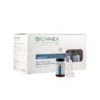 Bionnex Anti-Hair Loss Serum Concentrate – 12 x 10ml
Rated 4.83 out of 5(6) ₨ 8,500
Bionnex Anti-Hair Loss Serum Concentrate – 12 x 10ml
Rated 4.83 out of 5(6) ₨ 8,500 -
Add
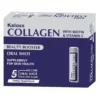 Vitamin with Collagen - Glow Up Beauty Booster | Collagen, Biotin & Vitamin C | 30ml
Rated 4.67 out of 5(6) ₨ 1,700
Vitamin with Collagen - Glow Up Beauty Booster | Collagen, Biotin & Vitamin C | 30ml
Rated 4.67 out of 5(6) ₨ 1,700 -
Add
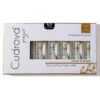 Serum for Hair - Cudrova Spazio Bond Repair Hair Serum with Argan Oil
Rated 4.20 out of 5(5) ₨ 5,428
Serum for Hair - Cudrova Spazio Bond Repair Hair Serum with Argan Oil
Rated 4.20 out of 5(5) ₨ 5,428 -
Add
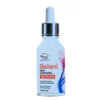 Serum for Skin Whitening - Brighten & Even Skin Tone - derma.pk
Rated 4.67 out of 5(6) ₨ 3,500
Serum for Skin Whitening - Brighten & Even Skin Tone - derma.pk
Rated 4.67 out of 5(6) ₨ 3,500 -
Add
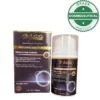 Motate Whitening Cream Night - 50g for Radiant Skin
Rated 4.80 out of 5(5) ₨ 2,190
Motate Whitening Cream Night - 50g for Radiant Skin
Rated 4.80 out of 5(5) ₨ 2,190







